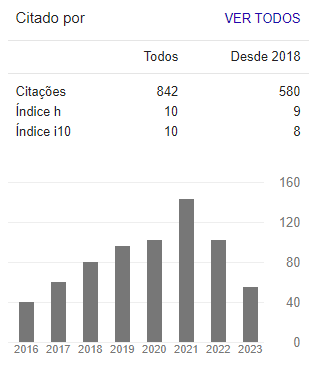FRONTEIRAZ 33- CALL FOR PAPERS EXTENDED!
FRONTEIRAZ 33
Aesthetics and the novel: desecration as a procedure
Call for papers extended to 10/06/2024
Guest Editors:
Prof. Dr. Elielson de Souza Figueiredo (State University of Pará)
Prof. Dr. Raphael Bessa Ferreira (State University of Pará)
Profa. Dra. Viviane Dantas Moraes (Federal University of Maranhão)
Profa. Dra.Vera Bastazin (Catholic Pontifical University of São Paulo)
The Brazilian novel, especially since the 20th century, has taken on the responsibility of laying bare violent scenes. How to narrate so that the effects of violence can be felt? How to expose readers to a sensitivity that makes them responsive/responsible in the face of the concerns caused by a profane piece of writing? How to produce an affection/effect on the reader? These are aesthetic issues that run through much of contemporary artistic accomplishments, whose purpose is not limited to representation; it also implies responsibility. By violating the conventional modes of narrating violence, the novel has promoted an "aesthetic desecration" that goes against the devices of representative poetics. Would it be possible to narrate violence as if the event was merely a report? Would it suffice to order the factual elements and report them as a narrative in the manner of one who presents a truth embellished with eloquent prose? The paradigmatic good writing is a form of interdict that the contemporary novel transgresses by proposing a kind of narrative that attempts to defy novel writing conventions.
Deliberately, the novel has transcended the boundaries of representation and assumed the responsibility, that is, the task of making the reader feel/experience what is being read. Many authors have taken on the challenge of materializing violence in their creative processes, by violating conventions and commonplaces of representative poetics. From the rawness of scenes to narrative cuts and ironic choices of cultivated language to describe the characters' spurious behavior, the novel has performed daring (anti)poetic profanities that break with traditional historical narrators, who ‘paint’ detailed scenes of ‘higher’ life for the contemplation of readers unharmed by what entertains them. By profaning models and transgressing boundaries – often approaching inter-art dialogue –, the contemporary novel questions the limits of language and expressive devices considered literary on account of their conventionalism.
In this issue – no. 33 – of FRONTEIRAZ, we are inviting for submission articles dedicated to the analysis of Brazilian novels written in the 20th and 21st centuries, in which writing committed to the desecration and transgression of ‘literary’ expression is materialized as artistic resources that resist the device of representation. How else could the novel bear witness to violence if not by offering itself to the reader as a body that resists/survives the violence of formal rules? This is the strategy used by many writers to dislodge readers from their contemplation towards a commitment to respond — practice responsibility — to the images of rawness and indifference that assail us on a daily basis. Papers that theorize the novel based on Hal Foster, George Bataille, Michel Foucault, Giorgio Agamben and Jacques Rancière, among others, will be welcome.
Please note that the ‘Essays’ and ‘Reviews’ sections have a continuous flow, regardless of the theme of the ‘Articles’ section. For further details, please refer to the editing guidelines under ‘Guidelines for authors’ at the following address http://revistas.pucsp.br/fronteiraz.
Deadline for submission of papers extended: 10/06/2024
.






 Este obra está licenciada com uma Licença
Este obra está licenciada com uma Licença 